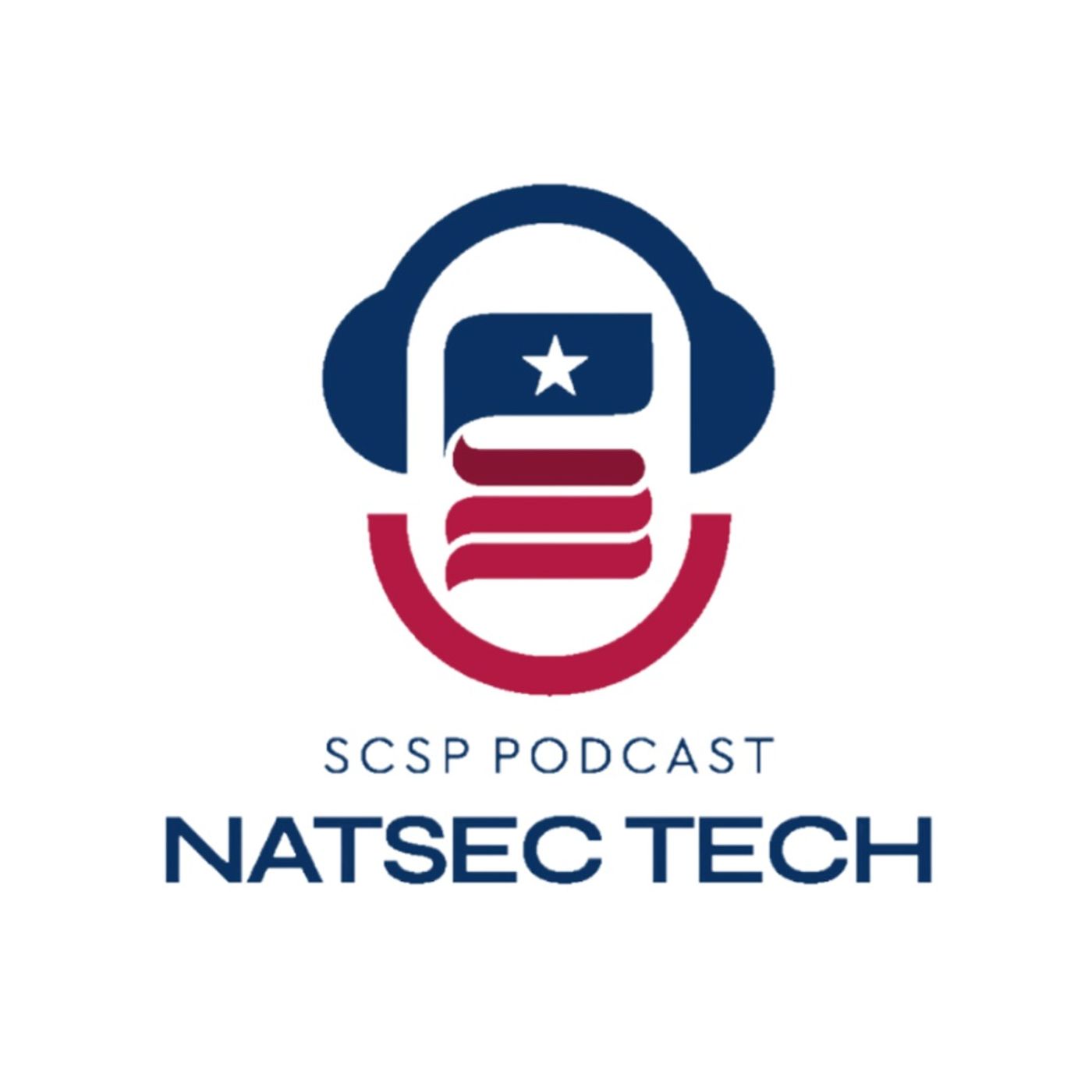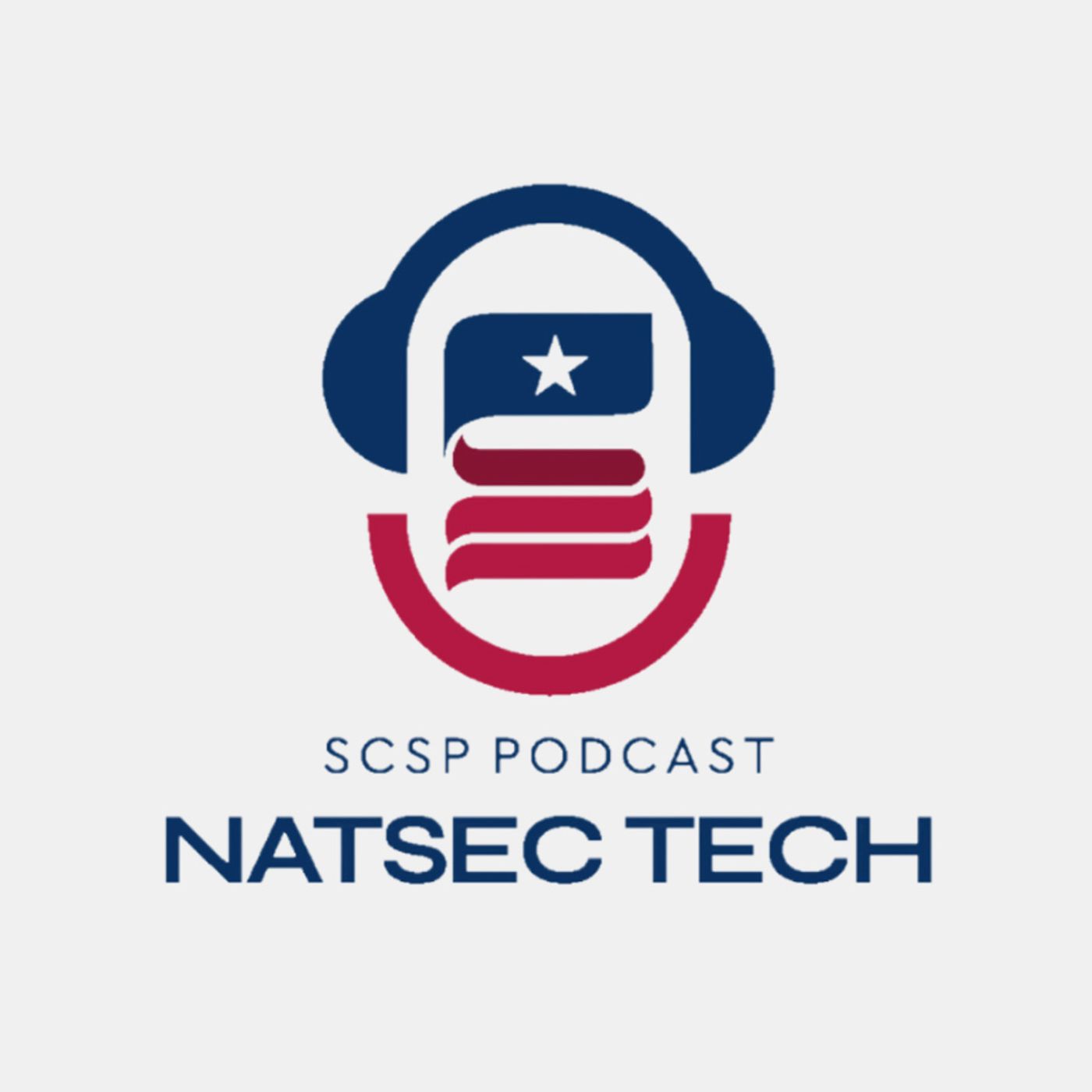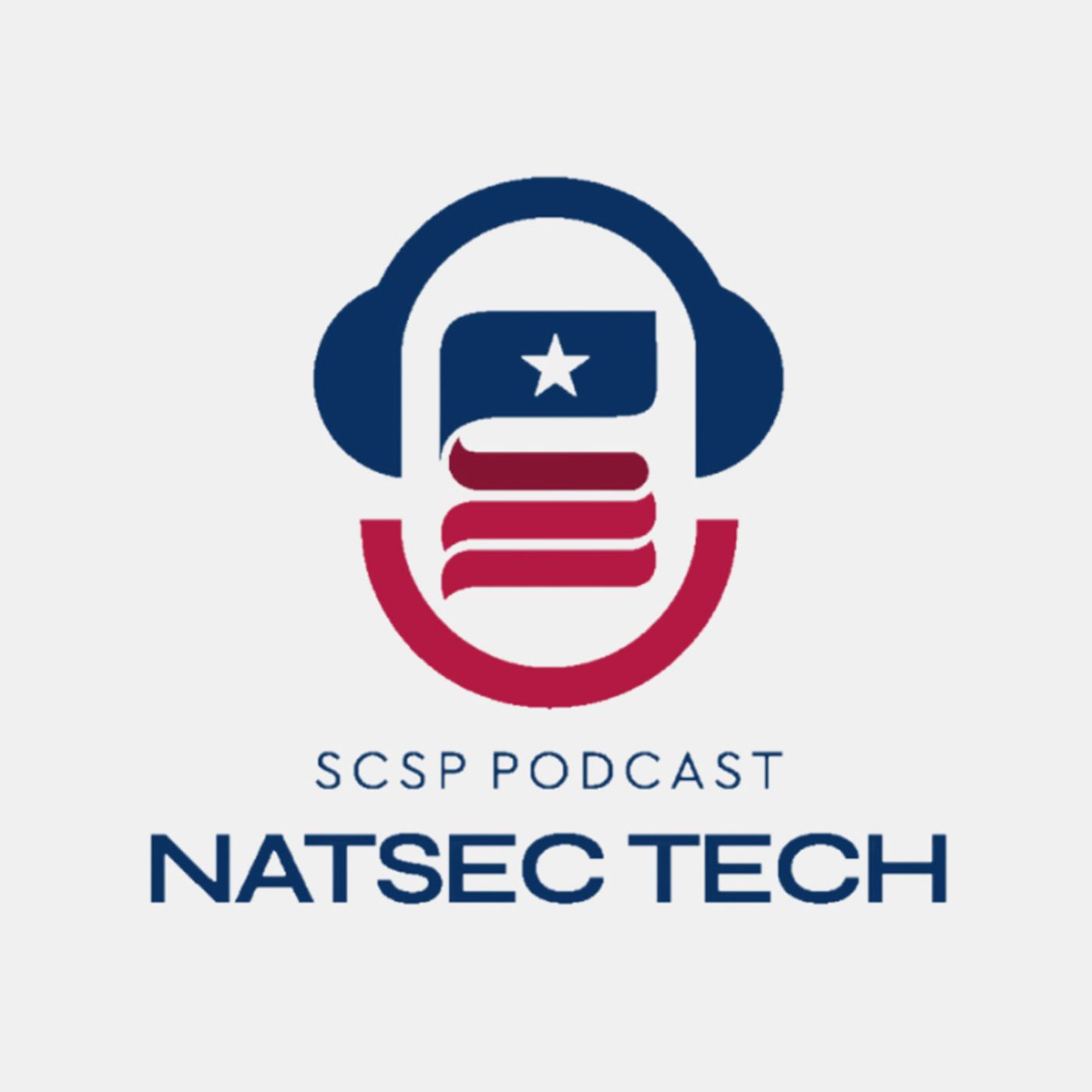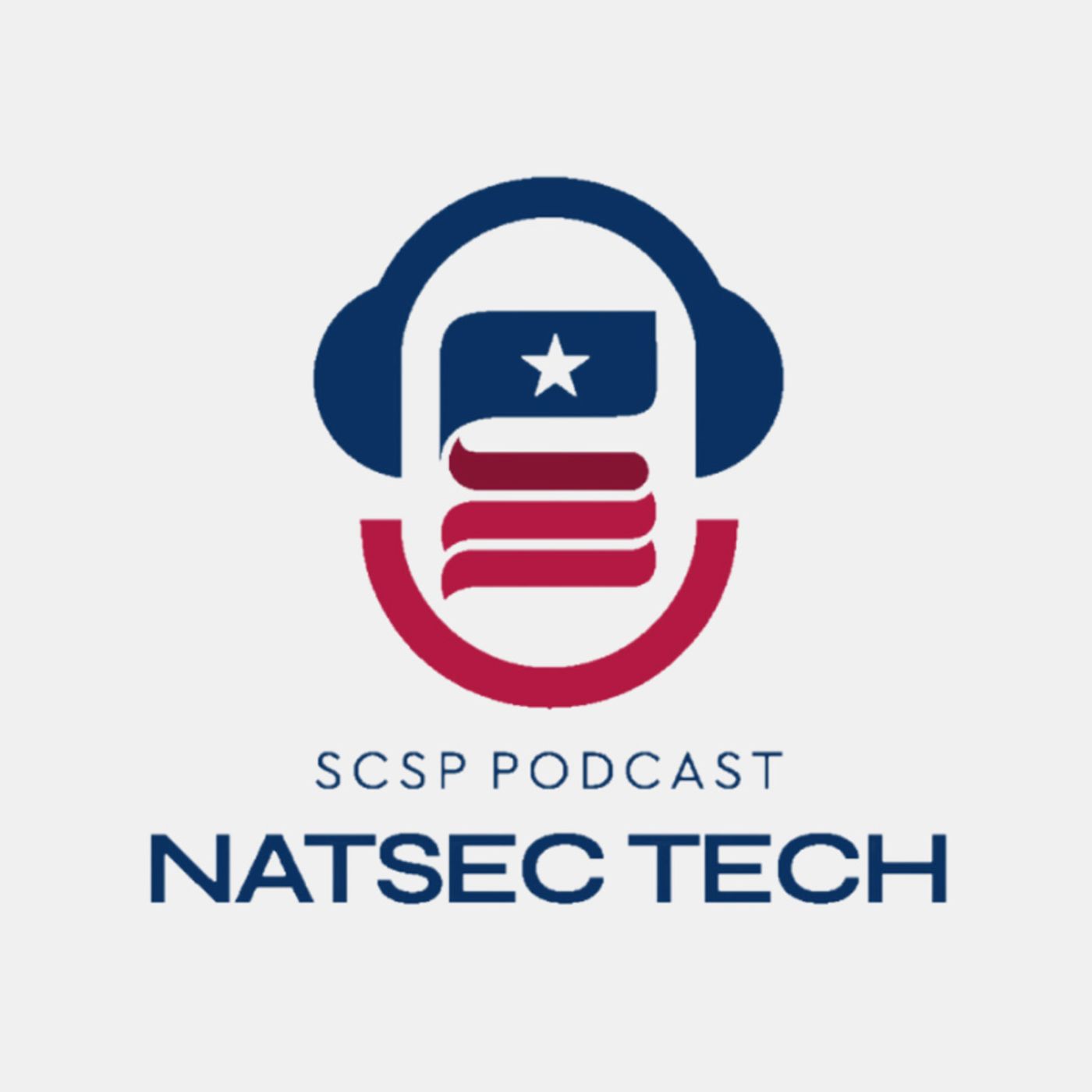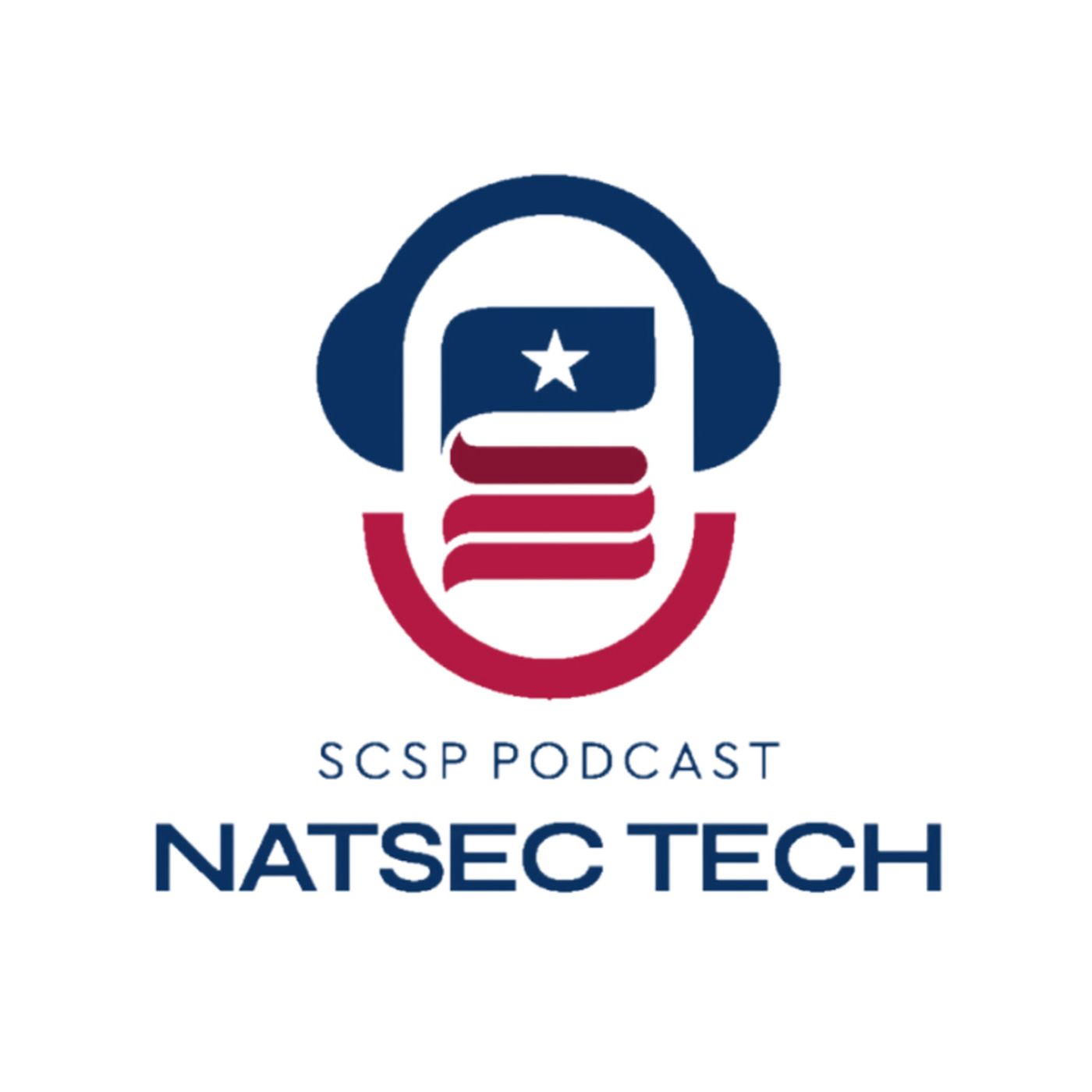Discover NatSec Tech
NatSec Tech

NatSec Tech
Author: Special Competitive Studies Project - SCSP
Subscribed: 26Played: 552Subscribe
Share
© Special Competitive Studies Project
Description
Every two weeks, Jeanne Meserve will host a series of guest expert conversations on topics ranging from how artificial intelligence impacts students in school, how synthetic labor impacts the workforce, the impact of export controls, and more!
91 Episodes
Reverse
On this episode of NatSec Tech, host Jeanne Meserve is joined by Dr. Dimitri Kusnezov to examine the critical risks and opportunities at the intersection of AI, nuclear, and biosecurity. Dr. Kusnezov explains that the democratization and convergence of emerging technologies—like AI and gene editing—have lowered the barriers to creating highly sophisticated threats. He details NTI’s Future Safe initiative, which uses these same technologies to generate real-time risk awareness and develop new mitigation strategies, stressing that fighting technology with technology is the only path forward.
In this episode, host Jeanne Meserve welcomes Andrew King, Executive Director of Future Union, a nonpartisan organization dedicated to galvanizing the private sector to stand with democracy. The conversation addresses the critical issue of how U.S. firms and investors are, sometimes unwittingly, fueling Chinese technological innovation, fundamentally undercutting U.S. national security.
In this episode, host Jeanne Meserve welcomes Dr. Amber Jaycocks, Senior Vice President of Data Science at Dun & Bradstreet, and Mounir Ibrahim, Chief Communications Officer and Head of Public Affairs for TruePic, to discuss the critical challenge of digital visual deception in the age of AI. They explore how deepfakes and AI-generated content are being used to perpetrate widespread business fraud and detail the necessary technological counter-measures, such as robust authentication and cryptographic verification, for maintaining national security and global commerce.
In this episode, host Jeanne Meserve welcomes Dr. Sarah Miller, Assistant Professor of Emergency Management at Pierce College and co-chair for the International Association of Emergency Managers Emerging Technology Caucus, to discuss how Artificial Intelligence is poised to radically transform emergency management. They discuss the critical role AI is playing across the entire crisis timeline—from predicting a storm's course and screening 911 calls to assessing damage and speeding up long-term recovery efforts.
How does the American public really feel about artificial intelligence? On this episode of NatSec Tech, host Jeanne Meserve is joined by Justin Lall of Gallup and Rama Elluru of the Special Competitive Studies Project to discuss the findings of their joint poll on public opinion on AI. They break down what Americans think about AI's impact on the economy, national security, and daily life. Read our Substack about the Gallup poll: https://scsp222.substack.com/p/we-commissioned-a-poll-with-gallup
In this episode of NatSec Tech, host Jeanne Meserve welcomes Steve Bowsher, the Chief Executive Officer of In-Q-Tel. Bowsher explains In-Q-Tel's role in identifying and funding cutting-edge commercial technologies for a wide range of government customers. He discusses why In-Q-Tel is needed, its rigorous process for vetting companies, its collaboration with other innovation entities, and its strategic priorities for the future, including autonomy software, generative AI, and the reindustrialization of the U.S.
Jeanne Meserve hosts a conversation with David Barboza, co-founder of WireScreen and The Wire China, on the complexities of China's business ecosystem. The discussion highlights Wirescreen, a data analytics platform that maps out business networks to reveal potential risks. They explore how the platform is used to uncover ties to sanctioned entities, and more. This is a public episode. If you would like to discuss this with other subscribers or get access to bonus episodes, visit scsp222.substack.com
Rob Geckle, Chairman and CEO of Airbus U.S. Space and Defense, joined Jeanne Meserve for a conversation on the future of military and defense technology. They discussed adapting commercial technology for military use, the "Golden Dome" missile defense project, and the strategic necessity of closer U.S.-European defense cooperation. This is a public episode. If you would like to discuss this with other subscribers or get access to bonus episodes, visit scsp222.substack.com
Horacio Rozanski, CEO of Booz Allen Hamilton, joined Jeanne Meserve live at The Exchange for a conversation on delivering tech solutions rapidly to the warfighter. They discussed the pivotal role of AI and space-based technology in national security, the AI competition with China, and more.Miss any of the recent episodes of NatSec Tech recorded live at the AI+ Expo? Catch up below! This is a public episode. If you would like to discuss this with other subscribers or get access to bonus episodes, visit scsp222.substack.com
Meredith Potter, Executive Director of the American Security Fund, joined Jeanne Meserve live at SCSP’s AI+ Expo for a conversation on working with allies in the emerging technology space. They discussed India and Taiwan, the strategic importance of building democratic tech alliances, and more.Miss any of the recent episodes of NatSec Tech recorded live at the AI+ Expo? Catch up below! This is a public episode. If you would like to discuss this with other subscribers or get access to bonus episodes, visit scsp222.substack.com
Jaap van Etten, Co-Founder and CEO of Datenna, joined Jeanne Meserve live at SCSP’s AI+ Expo for a conversation on rethinking tech policy in the U.S.-China competition. They discussed leveraging open-source intelligence to track China’s technological and military-civil fusion ecosystem, and more. This is a public episode. If you would like to discuss this with other subscribers or get access to bonus episodes, visit scsp222.substack.com
In this episode of NatSec Tech, host Jeanne Meserve is joined by Rye Barcott, co-founder and CEO of With Honor, live from the AI+ Expo. Barcott discusses With Honor's mission and bipartisan efforts, offering insights from his military background on the importance of service and an optimistic outlook for America's future. This is a public episode. If you would like to discuss this with other subscribers or get access to bonus episodes, visit scsp222.substack.com
In this episode of NatSec Tech, host Jeanne Meserve welcomes Greg Little, Senior Counselor for Palantir and former Deputy Chief Digital and Artificial Intelligence Officer at the Pentagon. Recorded live at the AI+ Expo, this discussion tackles the state of American shipbuilding, highlighting the contrast between the U.S. and global leaders like China in shipbuilding capacity and efficiency. This is a public episode. If you would like to discuss this with other subscribers or get access to bonus episodes, visit scsp222.substack.com
Margaret Woolley Bussey, Executive Director of the Utah Department of Commerce, joins host Jeanne Meserve to discuss Utah's establishment of an Office of AI Policy, Utah's thriving tech sector, and regulations and protections on AI. Bussey explains the office's three core objectives—encouraging innovation, protecting the public, and building a continuous learning function within government. The discussion highlights the office's successful work on mental health chatbots and its future plans to tackle deepfakes and AI companions. This is a public episode. If you would like to discuss this with other subscribers or get access to bonus episodes, visit scsp222.substack.com
Nadia Schadlow, National Security Visiting Fellow at the Hoover Institution and Senior Fellow at the Hudson Institute, and John Maslin, CEO and co-founder of Vulcan Elements, join host Jeanne Meserve to discuss the critical role of rare earth magnets, in everything from consumer electronics to advanced military systems like F-35s and submarines. The conversation covers how China's near-monopoly on rare earth processing and magnet manufacturing poses a significant national security and economic vulnerability for the United States, along with the urgent efforts to build a resilient, independent U.S. rare earth magnet supply chain.Join us for the AI+ Expo on June 2-4, 2025, at the Washington Convention Center, where we will be recording six live episodes of NatSec Tech! This premier gathering will be the ultimate meeting space for networking and building meaningful connections that will drive progress as we bring together the brightest minds in artificial intelligence, policy, and industry. Register today. This is a public episode. If you would like to discuss this with other subscribers or get access to bonus episodes, visit scsp222.substack.com
Dr. Nandita Balakrishnan, Director of Intelligence at the Special Competitive Studies Project, and Anna Knack, Senior Research Associate at the Alan Turing Institute join Jeanne Meserve to discuss their recent report, “Applying AI to Strategic Warning.” The conversation covers applying AI for strategic warning, examining how artificial intelligence could forecast geopolitical risks, and the report’s benefits, challenges, and future implications. This is a public episode. If you would like to discuss this with other subscribers or get access to bonus episodes, visit scsp222.substack.com
SCSP’s Chair, Dr. Eric Schmidt discussed the convergence of artificial intelligence and biotechnology at last week’s AI+ Biotechnology Summit. The conversation delved into the rapid progress of AI, its potential impact on various industries, and the implications of underfunded science in the face of intense global competition.Also check out last week’s episode with the Executive Director of the National Security Commission on Emerging Biotechnology, Caitlin Frazer, for a conversation on biotechnology’s national security impact. https://scsp222.substack.com/p/episode-74-caitlin-frazer-on-biotechnologys This is a public episode. If you would like to discuss this with other subscribers or get access to bonus episodes, visit scsp222.substack.com
Caitlin Frazer, Executive Director of the National Security Commission on Emerging Biotechnology, joins Jeanne Meserve to discuss the intersection of biotechnology and national security. The conversation focuses on the growing strategic competition with China, and their new report “Charting the Future of Biotechnology.”For more information on the report, visit: https://www.biotech.senate.gov/ This is a public episode. If you would like to discuss this with other subscribers or get access to bonus episodes, visit scsp222.substack.com
Ryan Gury, CEO of PDW, joins Jeanne Meserve to discuss the rapid evolution of drone technology and its impact on the future of modern warfare. This is a public episode. If you would like to discuss this with other subscribers or get access to bonus episodes, visit scsp222.substack.com
This is a public episode. If you would like to discuss this with other subscribers or get access to bonus episodes, visit scsp222.substack.com


